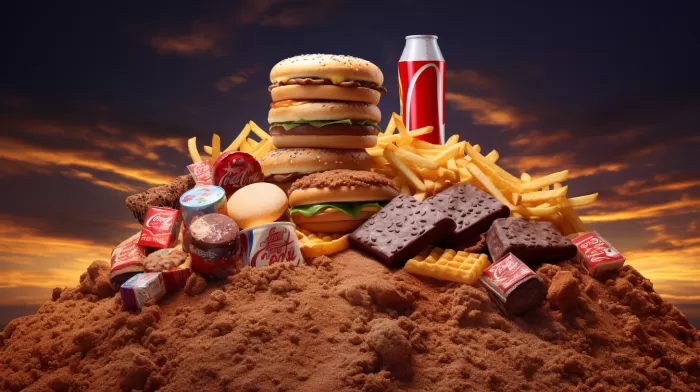Leading a “balanced” lifestyle for better health might sound like reasonable advice, but it’s essential to consider the source. When big food companies talk about a “balanced” approach to nutrition and wellness, it can easily become unreasonable propaganda. These companies have hijacked the term “balanced” to deflect blame for health issues stemming from nutrient-depleted processed foods — and worse still, they attempt to pin the blame on you!
Let’s take a look at the audacious marketing claims from some well-known companies:
- Coca-Cola encourages an “active balanced lifestyle.”
- McDonald’s supports a “balanced active lifestyle.”
- General Mills promotes “a balanced and healthy lifestyle.”
- PepsiCo advocates “a balanced lifestyle.”
- Unilever suggests the answer to health lies in “a balanced diet and lifestyle.”
- Mars favors a “well balanced lifestyle.”
- Nestlé champions “a balanced lifestyle.”
The use of almost identical language across these corporations is no coincidence. They all have the same goal in mind — selling you more processed food. Their marketing messages aim to convince you that their products can be part of a “balanced” lifestyle.
Don’t fall for their tricks
Indra Nooyi, the CEO of PepsiCo, has spoken about the diabetes and obesity epidemic (which soft drinks, including Pepsi, have contributed to): “There’s no question that sedentary lifestyles have caused the obesity crisis to get out of control.” What she fails to mention is the immense role played by the junk food industry’s favorite additive, high-fructose corn syrup, in what we consume. As Yoni Freedhoff, a professor at the University of Ottawa, warns, you can’t offset the impact of consuming junk food and soda through exercise. These sugary concoctions will create health issues no matter how much you work out.
Freedhoff also cautions against the use of athletes as endorsers of soft drinks and other junk foods. He argues that if an elite athlete chooses to sell sugary soda to their young followers, they should no longer be considered a good role model but rather a business person.
Even when you search online for nutrition advice offered by these companies, you might come across seemingly reliable help in the form of colorful newsletters. However, dig deeper, and you’ll discover they promote products like Memento, a drink that includes hydrogenated oil – a form of trans fat linked to cancer and heart disease. Nestlé’s newsletter claims that Memento is a “guilt-free beverage”. However, like many of these products, it’s not part of a balanced lifestyle but rather a recipe for health disaster.
Discovering real balance without the danger
Giving up sugary soft drinks is challenging, and big companies are well aware of this. However, if you can begin to cut down on these beverages, you may find it easier to eliminate them from your life altogether.
Tea is a great alternative choice. You can still get the caffeine you may be used to, but you can drink it unsweetened or add a natural sweetener like honey or stevia. Additionally, green tea has numerous health benefits for you. Dr. Mark Wiley supports this notion and states that drinking tea, specifically green tea, has a significant lowering effect on blood pressure. Consuming four cups or more per day achieves the best results. Consider exploring the health benefits of green tea to discover how various teas might work for you.
Staying aware of misleading marketing tactics, cutting down on sugary soft drinks, and finding healthier alternatives is crucial for achieving a truly balanced lifestyle without falling for big food companies’ deceptions.



